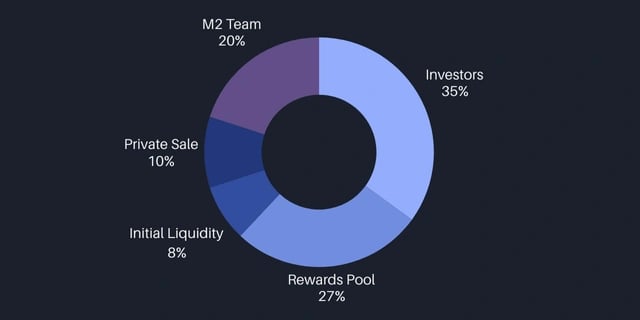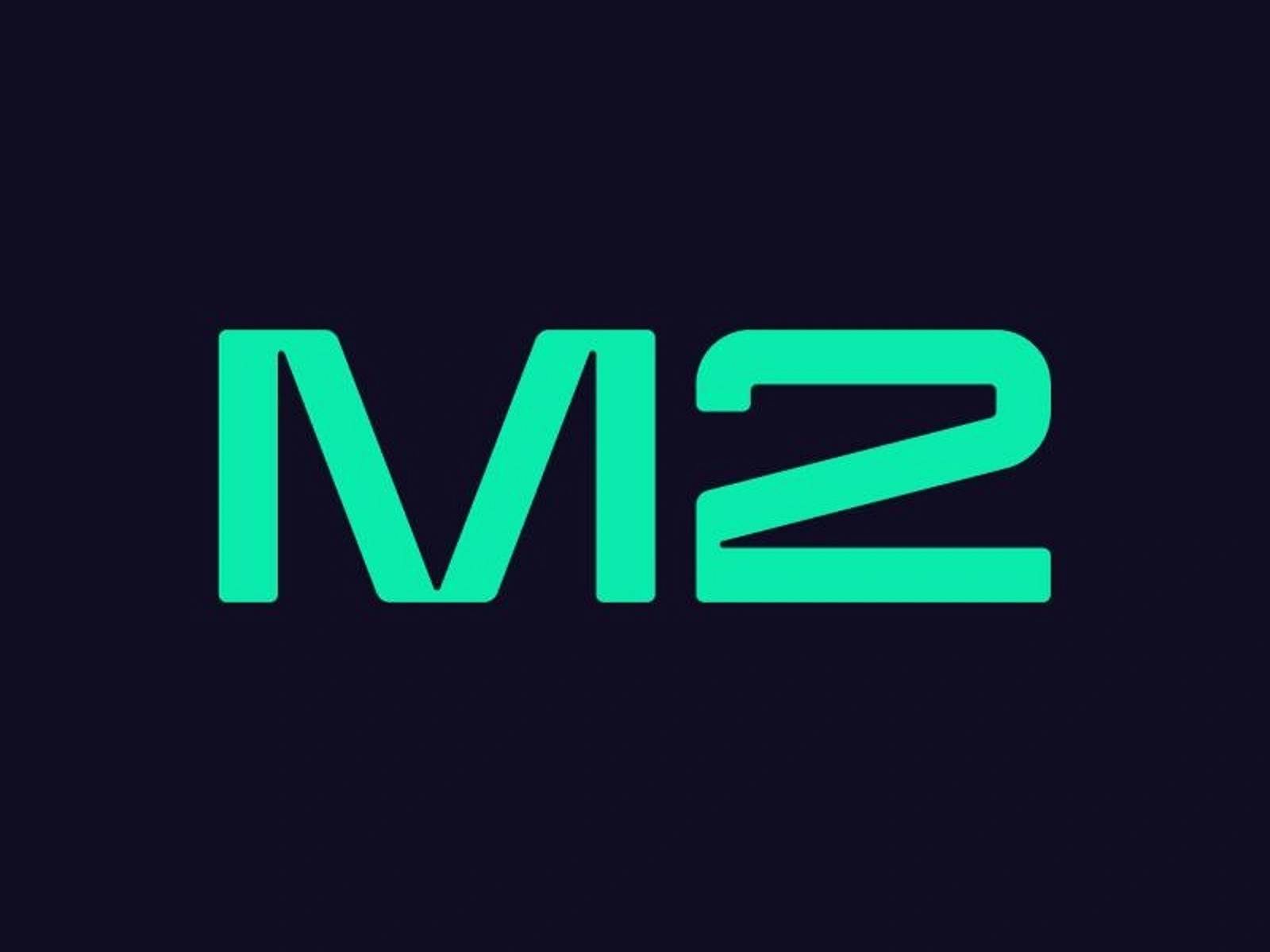위키 구독하기
Share wiki
Bookmark
M2 Exchange
0%
M2 Exchange
M2 Exchange는 아랍에미리트에 기반을 둔 암호화폐 거래 플랫폼(CEx)입니다. 아부다비 글로벌 마켓(ADGM) 내 금융 서비스 규제 당국(FSRA)의 규제를 받습니다. 2023년에 설립된 M2 Exchange는 다양한 가상 자산 거래를 위한 안전하고 규정을 준수하는 환경을 제공하는 데 중점을 두고 운영됩니다. 이 플랫폼은 150개국 이상의 소매 및 기관 투자자에게 서비스를 제공합니다.[5][6][7]
개요
M2 Exchange는 신규 거래자와 숙련된 거래자 모두의 요구를 충족하도록 설계된 다양한 거래 및 금융 상품을 제공합니다. 이 플랫폼은 비트코인 (BTC) 및 이더리움 (ETH)을 포함하여 50개 이상의 검증된 디지털 자산에 걸쳐 현물 거래, 영구 선물 계약 및 스테이킹 서비스를 지원합니다. 사용자는 시간 가중 평균 가격(TWAP) 주문, 동적 시장 주문 및 실시간 거래 모니터링과 같은 고급 주문 유형 및 거래 도구에 액세스할 수 있습니다.
플랫폼 인터페이스는 사용자 친화적이면서도 보안 조치를 통합하도록 설계되었습니다. M2는 자산 보호 및 사기 방지에 기본이 되는 자금세탁 방지(AML) 및 고객 알기 제도(KYC) 요구 사항을 포함한 국제 규정을 준수합니다. 플랫폼의 재정적 및 운영적 무결성을 확인하기 위해 정기적인 외부 감사가 수행됩니다. 보안 조치에는 대부분의 사용자 자금에 대한 콜드 스토리지와 계정 액세스를 위한 다단계 인증이 포함됩니다.[5][6][7]
MMX 토큰
M2 Exchange 생태계에는 이더리움 블록체인의 ERC-20 토큰인 기본 유틸리티 토큰인 $MMX가 포함됩니다. 총 공급량 5억 개의 토큰으로 MMX는 거래 수수료 감소, 스테이킹에 대한 더 높은 수익률, 새로운 상장 및 플랫폼 기능에 대한 조기 액세스와 같은 이점을 제공합니다. MMX 토큰은 시간이 지남에 따라 유통량을 줄이는 토큰 소각 메커니즘을 통해 디플레이션 모델을 사용합니다. MMX 보유자는 토큰을 스테이킹하여 보상을 늘릴 수도 있습니다.
MMX는 토큰 보유자가 거래소의 미래와 관련된 의사 결정 프로세스에 참여할 수 있도록 하는 플랫폼의 거버넌스 구조의 일부입니다. 이 기능은 플랫폼 거버넌스에서 커뮤니티 참여를 강조하는 암호화폐 산업의 추세와 일치합니다.[1][4][6]
토큰노믹스
배포
- 비율: 35%
- 토큰 공급량: 175,000,000
- 베스팅 조건: 2년 동안 잠금, 이후 3년 동안 매월 릴리스됩니다.
- 비율: 27%
- 토큰 공급량: 135,000,000
- 베스팅 조건: 처음에는 잠겨 있으며 매달 토큰의 10%가 잠금 해제됩니다.
- 비율: 8%
- 토큰 공급량: 40,000,000
- 베스팅 조건: 출시 시 완전히 잠금 해제됩니다.
- 비율: 10%
- 토큰 공급량: 50,000,000
- 베스팅 조건: 토큰의 20%가 즉시 릴리스되고 12개월부터 시작하여 2년 동안 매달 3.333% 선형 릴리스됩니다.
- 비율: 20%
- 토큰 공급량: 100,000,000
- 베스팅 조건: 2년 동안 잠금, 이후 3년 동안 매월 릴리스됩니다.

이 배포 모델은 즉각적인 유동성 요구와 장기적인 약속의 균형을 맞추는 것을 목표로 하며, 토큰 공급이 플랫폼의 성장 및 안정성 목표와 일치하도록 보장합니다.[1][4][6]
주요 기능
-
수익 상품: M2는 사용자가 디지털 자산에서 수입을 창출할 수 있도록 하는 수익 상품을 제공합니다. 이 플랫폼은 30일에서 360일까지의 기간으로 유연한 고정 기간 스테이킹 계획을 모두 지원합니다. 이러한 계획은 30개 이상의 다양한 암호화폐를 다루고 경쟁력 있는 연간 백분율 수익률(APY)을 제공합니다. 이러한 상품 내에서 MMX 토큰을 스테이킹하는 사용자는 향상된 수익을 받을 수 있습니다.
-
고급 거래 도구: M2 Exchange는 TWAP(시간 가중 평균 가격) 주문 및 동적 시장 주문을 포함한 고급 거래 도구를 제공합니다. 이러한 도구를 통해 사용자는 시간이 지남에 따라 대규모 거래를 실행하거나 시장 상황에 대응하여 주문을 조정하여 거래를 최적화할 수 있습니다. 이 플랫폼은 또한 실시간 거래 모니터링, 주문서 시각화 및 시장 심도 분석을 제공합니다.
-
기관 서비스: M2 Exchange는 장외(OTC) 거래 데스크 및 가상 자산 관리 서비스를 통해 기관 고객에게 서비스를 제공합니다. 이러한 서비스는 풍부한 유동성, 경쟁력 있는 가격 책정 및 고액 자산가 개인 및 기관 투자자를 위한 맞춤형 솔루션을 제공합니다. OTC 데스크는 최소한의 슬리피지로 대량 거래를 용이하게 하는 반면, 자산 관리 서비스는 기관 고객이 다각화된 암호화폐 포트폴리오를 관리하는 데 도움을 줍니다.[3][1][6][7]
보안 및 규정 준수
보안은 M2 Exchange의 주요 초점입니다. 이 플랫폼은 콜드 스토리지 솔루션을 사용하여 대부분의 고객 자금을 보호하고 계정 및 데이터 보호를 위해 다단계 인증(MFA) 및 고급 암호화 기술을 사용합니다. M2는 자금 세탁 및 사기와 같은 불법 행위를 방지하기 위해 AML/KYC 조치를 포함하여 FSRA에서 설정한 규제 프레임워크를 준수합니다. 이 플랫폼은 재정적 및 운영적 보안을 확인하기 위해 정기적인 외부 감사를 거쳐 사용자 간의 투명성과 신뢰를 강화합니다.[3]
잘못된 내용이 있나요?
